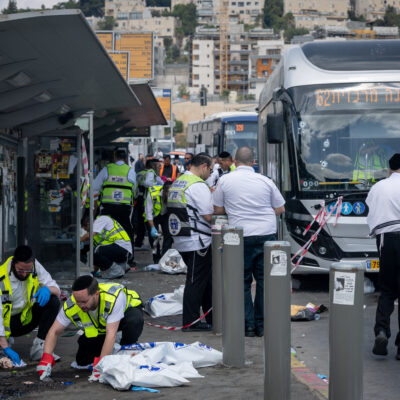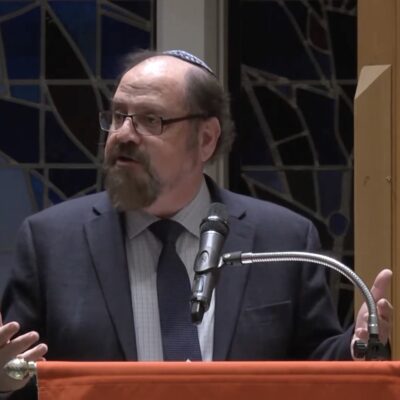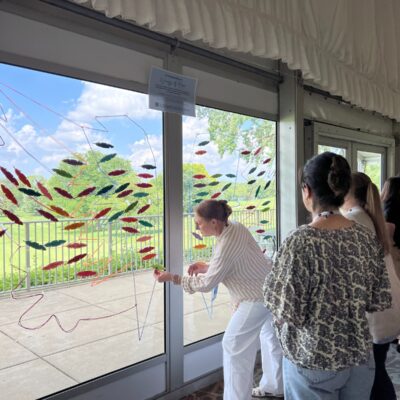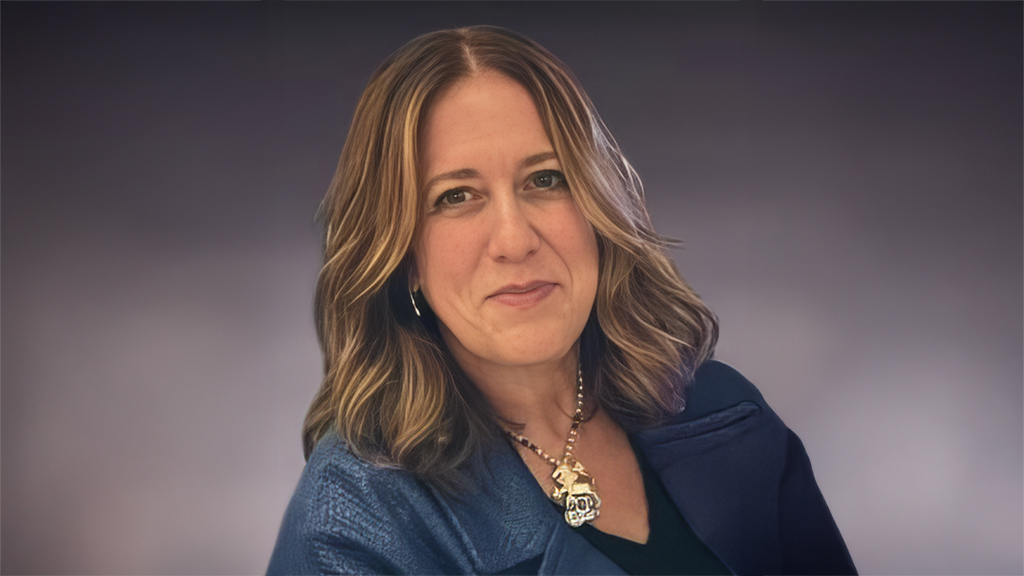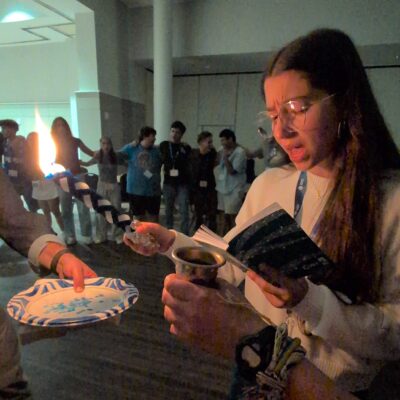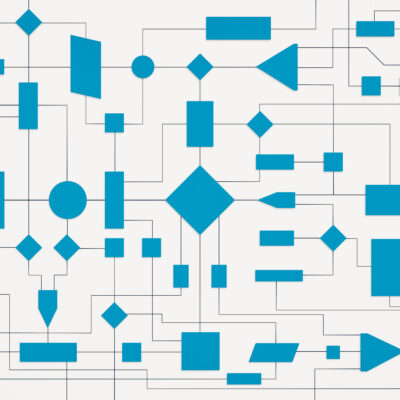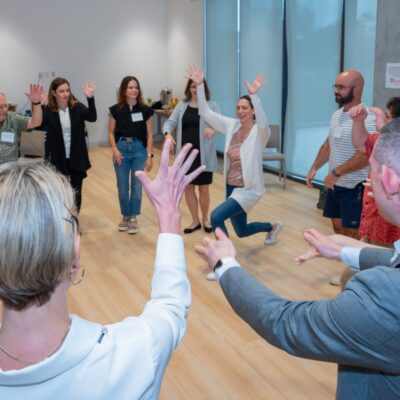Q&A
How to build the Israeli camping movement when every summer ‘a catastrophe happens’
This year, Summer Camps Israel will provide funding for a full-time mental health professional at every camp it supports, founder Shawna Goodman Sone tells eJP

eJP Archives
Every year since Summer Camps Israel was created in 2020 has been a crisis-laden year. First, there was the COVID-19 pandemic, then a multiday battle between Israel and the Palestinian Islamic Jihad terror group, then the political turmoil in Israel in 2023 and now the ongoing war in Gaza and lingering effects of the wars against Hezbollah and Iran.
“There’s never been a quiet summer,” Shawna Goodman Sone, the founder of SCI, told eJewishPhilanthropy recently.
Extended sleepaway camps, those lasting more than a few days, are a rarity in Israel (and most countries outside of North America), but Goodman Sone — an evangelist of the merits of Jewish camping — has sought to change that, helping build the industry in Israel through grants, networking and general support.
This year, SCI will provide more than NIS 7.5 million ($2.2 million) in funding to 19 Israeli summer camps, which must run for at least nine nights and require campers to surrender their phones for the duration. Of that funding, some $750,000 is used for scholarships for the camps, which cost between $1,500 and $1,800 on average. SCI is also helping to pay the salary for a full-time mental health professional at each of the 19 camps — a sign of both the high-stress atmosphere in the country and growing awareness about the importance of mental health in camping.
Last week, eJP spoke with Goodman Sone to better understand the state of the Israeli overnight camping field in the wake of Israel’s war with Iran and its ongoing war in Gaza.
The interview has been edited for clarity.
Judah Ari Gross: It’s been a difficult year in terms of everything summer program-related. Much of the focus has been on the international trips — the Americans coming to (or not coming to) Israel and the Israelis being delayed in coming to America or not being able to travel elsewhere. How has the Iran war and the ongoing fighting in Gaza affected summer camps within Israel? Has there been increased demand because of the cancellation of these other summer programs?
Shawna Goodman Sone: Since we started this five years ago, there’s never been a quiet summer. Every case study has been thrown at us, which is great because it makes us sharper and it reminds us that we’re not building North American overnight camps. We’re building Israeli overnight camps that respond to the outside forces that are greater than us in order to bring the same elements that North American camps have that are “sticky.” That is belonging, a love for being Jewish, learning how to be a friend, learning how to live with people who are different than you. And I can’t overestimate the value of fun, because I think our [Israeli] kids here have more seriousness. My 54-year-old self is craving some more fun, also, so I don’t underestimate the power of that.
We work all year, working in partnership with municipalities because municipalities are the key to families. They work through the schools, and we’re bringing something fairly new to market. We’re five years young. It’s not normative to send your child away from the ages of 11 and 16 to go away for more than three days. And usually, when they do go away for three days, the parents come halfway in to help cook or to do something. They sneak their way in. So this whole immersive go-away-from-home idea is not normative, and it’s expensive.
People who think they know about it think that it’s for only rich kids and that it’s just this American concept, and I’ve really tried to dispel that with our team, which is fiercely Israeli, who they themselves didn’t know over camp, and to really create access with scholarships, with philanthropy to help with capacity building grants, and to make camp something normative. Like, “What are you doing this summer?” “I’m going to camp.”
So this summer, we were hoping for 15,500 kids. We worked with camps and municipalities where they’re securing money, and we’re securing money. They’ve locked in a price that they feel is palatable for the parents. And that’s what we were lined up to do.
And then the war within the war erupted, and it was right when we were going to be launching one of our camps. So two of those got postponed to the end of the summer. They’re still lined up to go, but they haven’t happened yet. They haven’t been canceled, they’ve been pushed, which is fabulous to me. And we’re hoping for the summer that we’re going to get 13,000 kids.
We make estimations, and then it’s on the camps to do the selling, to fill those beds. We really only know our true numbers at the end of the summer, when we get lists and give our scholarships out.
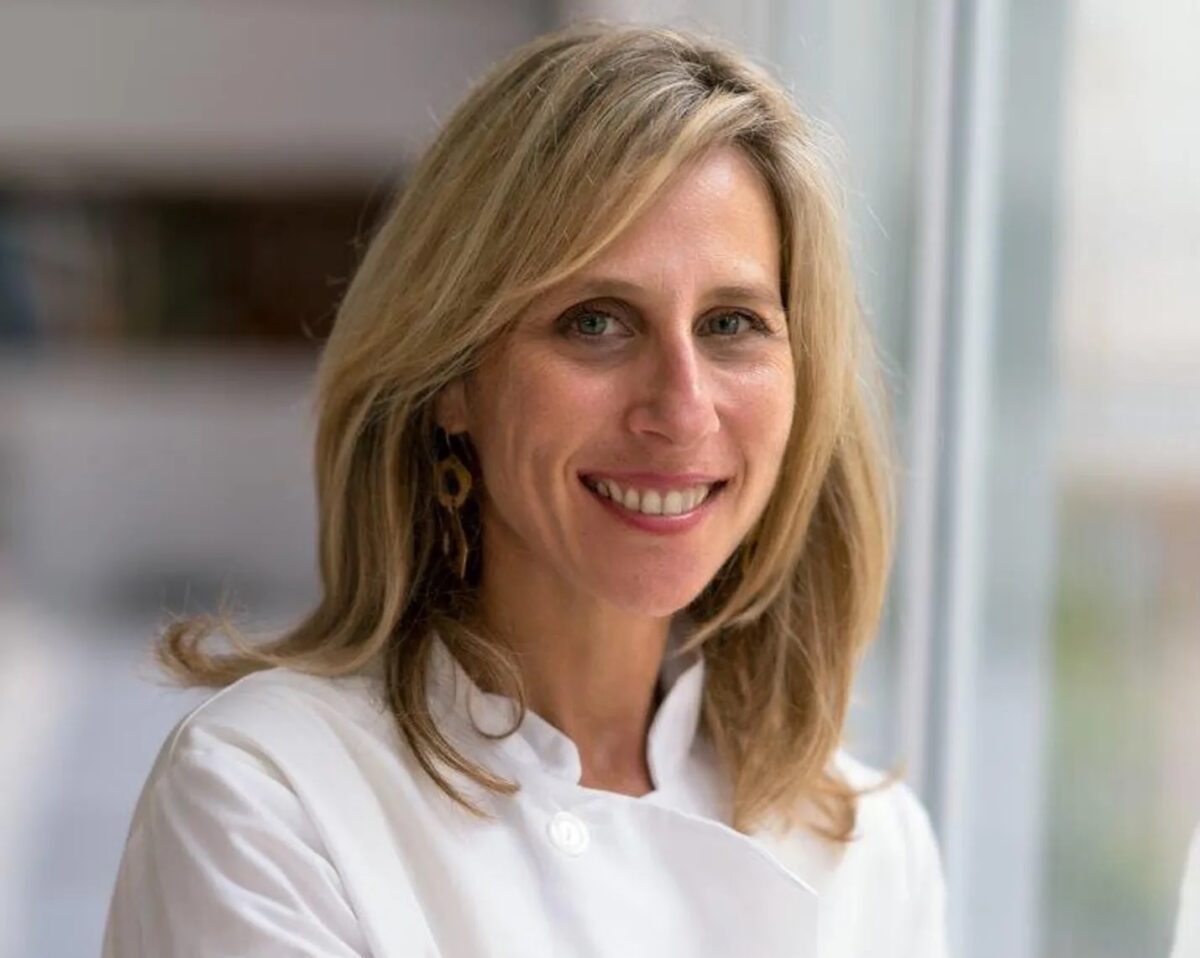
JAG: How does that match initial approximations versus turnout from previous summers? Is this a bigger drop than normal because of the situation?
SGS: It’s a drop from last summer when we estimated around 15,000 kids, and we ended up getting almost 14,000 kids.
But we see by the inquiries and by the repeats and the other municipalities raising their numbers that we’re seeing growth.
When I first got into this, I thought, I’m going to measure our success by if [the kids] are going to come back and it will be a family camp that you go to from age 9 to 16, which is like what I did [at Ramah Canada].
But we don’t have a lot of those camps [in Israel] because our camps are new. They’re 100 kids, and they’re often focused on 14- and 15-year-olds, or some are just focused on girls or something, so we don’t have this breadth yet. Instead, the whole notion is, I want to go to this camp and then I want to go to another camp and then I want to try this camp. It’s growing.
We have 1 million kids [in Israel] doing nothing in the summer. This is just one idea that I’ve put out. I’m welcoming more ideas, and it’s not for everybody. And we will only give scholarships if the camps have a minimum of nine nights. We won’t give an organization a scholarship if they’re doing an amazing camp for five nights, because I’m trying to push the length of immersive experiences.
We’re growing. I’m very pleased with these numbers. I am because every summer, a catastrophe happens.
JAG: What were the specific needs for this summer?
SGS: There are approximately 11,000 families that lost their [homes in the war with Iran]. So we called the municipalities and said, “If you want, we’re happy to take these kids.” So we’ve been very actively doing that. We secured money specifically, so that if any kid from any of these areas wants to go, we [can provide] that.
Also, the north is hardly finished and hardly healed. So we’re very focused with many of the Canadian federations, as well as UJA-Federation of New York, to provide camp for [kids from northern towns] as well.
I just want to build the scale. I would argue that every Israeli child is suffering mentally. And so anybody who wants [to go to camp] and applies for it, we’re there with them.
JAG: There are a number of initiatives underway providing summer programs to Israeli children from these war-affected areas. The Jewish Agency is also sending hundreds of kids to American summer camps, for instance. What’s the ecosystem like? Is there competition to get these kids?
SGS: It’s a great question because I started this work because I was having parlor meetings in my house, trying to get kids to fly to Canada to my Ramah, which I love so much. But it’s just not a sustainable model. It’s a fortune of money, and it’s a really big leap to go from not knowing what camp is to getting on a plane to go foreign country with a different language. And for the parents, forget it. Like, talk about angst.
And I will never fight anybody [about it]. If you want to go to camp in Canada, you have my support. But I really feel that it’s a humongous leap. And I think now more than ever, Israelis need to take care of their youth during the summer months, on their own land. And I think building trust again in the land itself is a really strong value that I take very seriously.
I want to build a whole camp journey that they can start here in Israel and do a program this summer, and then eventually build to going to a North American camp. To me, it’s the same ecosystem. And I sit on the board for the Foundation for Jewish Camp for that exact reason. These are global Jewish kids. And I want it to be like reversed as well. I would love for Americans to come to our camps. There’s no one-size-fits-all. I think that we are broadening the market of what summer camp can look like.
JAG: I see that this year, SCI has allocated NIS 7.5 million. Some of that is for scholarships for campers, what is the rest of the funding for?
SGS: We have a mixture of ways that we support the field:We have four part-time people working, representing one-and-a-half full-time salaries, where they’re on call for any of the camps. If they have questions about anything — you can’t find chicken, you can’t find some license, whatever. That’s their job.
We have also identified strategic partners to whom we give capacity-building grants. We stay with them for three years, and some of that even required paying for a staff member to be the full-time camp director. It’s not that you can decide in May to run a camp and say, ‘We’re going to wing it.’ It requires a lot of work.
Five years into it, those camps are starting to realize it. This winter, we took [17 Israeli camp directors] to the Foundation for Jewish Camp conference [in Chicago]
The biggest takeaway for them, they told me “Shawna, I didn’t know this is a profession. I didn’t know this isn’t just a job.”
So we give them capacity-building grants, and we also give them scholarships. Our job is to build scale.
JAG: I noticed that this year there is also funding for mental health programs at the 19 camps.
SGS: Yes, in the past, we did training on mental health beforehand with the field. But during the time that they were running the camp, if they had any challenges or issues or they needed support, we hired a company that was 24/7 available to them with support, but [the mental health professionals] weren’t sleeping there. And if there was an emergency, they are all near hospitals.
This year, we got a donation, and we put money in as well, to provide a mental health support worker in every single camp because that’s what the situation requires for the campers. And it is required for the staff. I hope they’re not used, but it’s like buying insurance.
We all agreed, after listening to the field, that this is a must. This is where we’re at.
This goes hand in hand with letting your children go to camp. This allows me to say to a parent that this is a safe, nurturing bubble that has professional staff there, that we get this, that we understand. So that’s a big difference.
It’s in all of the camps. We paid for all 19, and that was a big bill, but it’s a bill I was very proud to pay.


